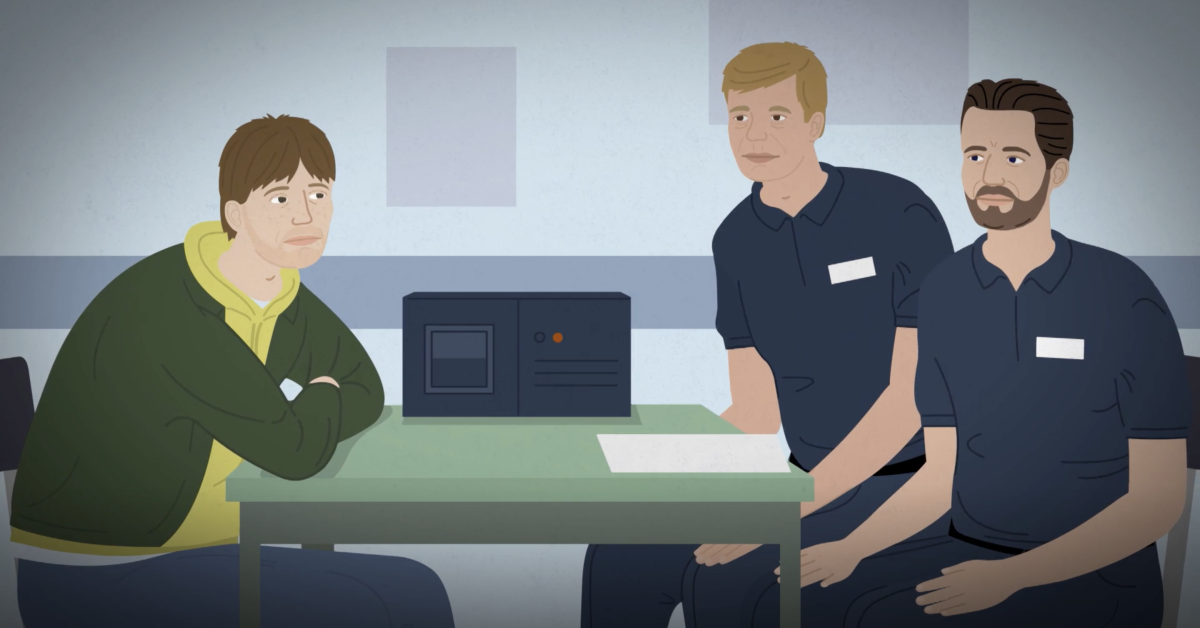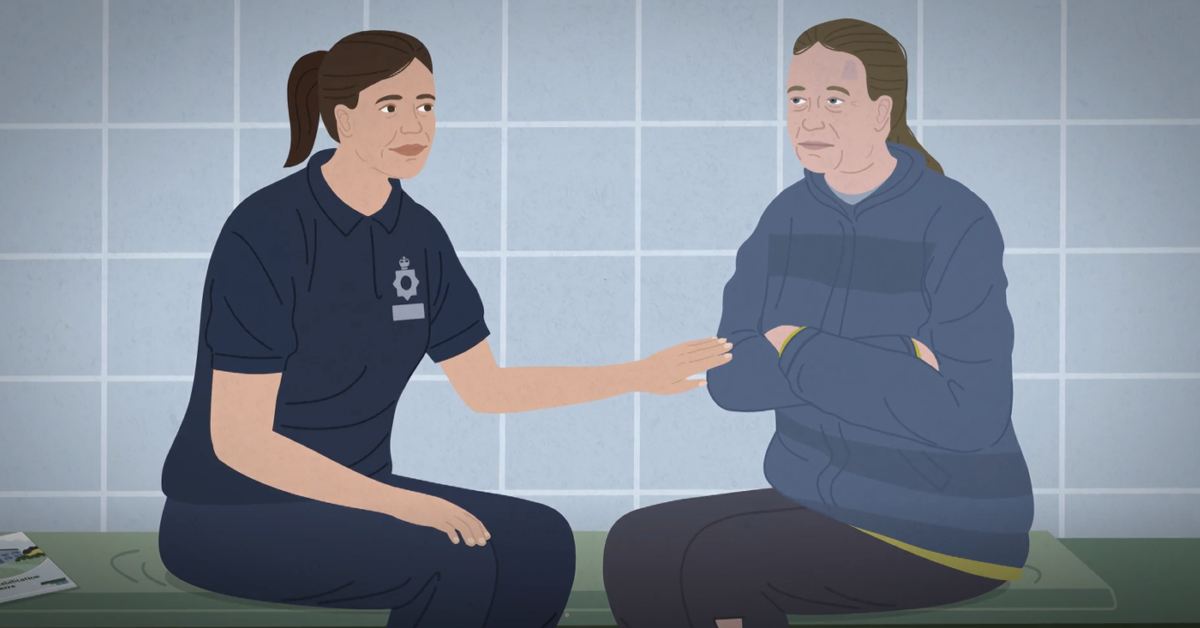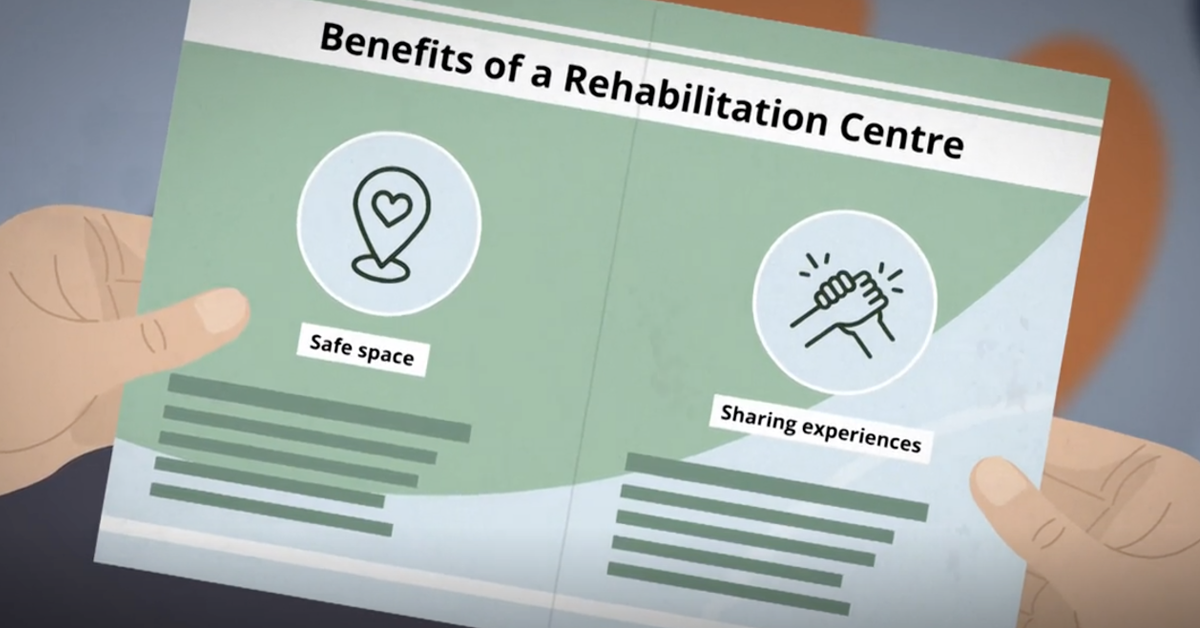What does quality healthcare look like in police custody?
1 May 2025 | By: Dr Gethin Rees | 8 min read
What happens when someone in police custody has urgent health needs? Unlike prisons in England, where the principle of ‘equivalence’ ensures healthcare matches community standards, there are no clear and explicit healthcare standards for those detained in police custody.
A research team from Newcastle, Northumbria, and Durham universities set out to better understand how healthcare is delivered in custody suites and identify ways to enable a higher standard of care.
Principal Investigator, Dr Gethin Rees, Senior Lecturer in Sociology at Newcastle University, shares the team’s key findings and sets out recommendations for change.
Contents:
- What is it like to be held in police custody with physical or mental health needs?
- The equivalence standard in the case of police custody
- What is the AAAQ Framework, and why does it apply here?
- How did we do it?
- Our findings: The ‘Equivalence in Police Custody’ report
- Withdrawal and consequences on interviews
- Our recommendations: what needs to change?
- Next steps and collective action
- Final thoughts
What is it like to be held in police custody with physical or mental health needs?
For many, spending time in police custody isn’t only about answering questions. It’s also about managing the physical and mental repercussions of being detained. Having access to quality healthcare, current prescriptions, and robust mental health support can tip the balance between a detained person's sense of desperation and hope.
‘The healthcare in there is absolutely hopeless. You get arrested and you’re detained for 12 hours and you’re in a cell sick because the healthcare won’t help you. They won’t give you methadone, let alone phone up the chemist and ask if this guy is on a script and if he is taking his methadone. They don’t provide you with anything like that, so they make you suffer in a cell, sweating, being sick, diarrhoea, and you just want to end your life.’ Anonymous - with lived experience of being detained in police custody
Our research showed that healthcare provision in police custody is frequently delayed or denied to detainees, as not enough nurses and other Healthcare Professionals (HCPs) are available to cover custody suites. In some cases, this also meant that ongoing prescriptions and medications could not be issued. This included access to drugs for the treatment of epilepsy, cancer, mental health conditions, insulin for diabetes, and methadone and other opioid replacements.
In addition, different healthcare provider companies have different lists of medications that HCPs can give to detained persons. These lists, referred to as Patient Group Directives (PGD) dictate the medications and quantities HCPs can provide for different conditions. The variance between companies’ PGDs frequently leads to different levels of care being provided across different Police Force areas, resulting in a ‘postcode lottery’ of healthcare depending on where a person is arrested.
Animation based on the findings from interviews with persons with lived experience of poor health in police custody, co-produced with volunteers from Waythrough, a third-sector organisation that helps people with issues around their mental health. The animation was created by Alternative View Studios.
The equivalence standard in the case of police custody
The equivalence standard in prisons, often referred to as 'equivalence of care’, says that prisoners should have access to healthcare services that are at least comparable in quality and scope to those available to the general public.
This principle ensures that imprisoned people receive the same standard of care as non-imprisoned people, and so will benefit from the same health outcomes.
But what is the equivalence standard prior to being imprisoned, when an individual is in police custody? This question formed the basis of our research project.
We very quickly (both empirically and in discussion with our project Advisory Group) discovered that police custody healthcare at the present time is far from an equivalent standard to that provided in the wider community. We also discovered that the prison equivalence standard is vague and unclear, making it difficult to implement in police custody.
What is the AAAQ Framework, and why does it apply here?
We turned to the AAAQ Framework, specifically the elements relating to the right to healthcare.
This includes four essential, interrelated elements: availability, accessibility, acceptability and quality. The AAAQ Framework advises that healthcare should be:
- available at the point of need
- accessible in that the right forms of treatment are available, and that they are available to all, including the underprivileged
- acceptable to all, always people-centred, and sensitively catering to the specific needs and requirements of a diverse population
- good quality, including the material resources used for healthcare (the building, the instruments, the tools, appropriate medicines available)
Quality is a key component of universal health coverage (UHC). UHC means that all people have access to the full range of quality health services they need, when, and where they need it – including in police custody. Quality health services should be safe, effective, people-centred, timely, equitable, integrated, and efficient.
Taking the AAAQ Framework as exemplifying the basic standard of healthcare that should be seen in police custody, we’ve brought together our findings and the framework to develop recommendations for healthcare practice.

Supportive and non-stigmatising attitudes and behaviours to detained persons are vital for quality care in police custody.
How did we do it?
The project included three methods-based work packages:
- work package one: an ethnography of four police custody suites, totalling approximately 500 hours of observation (130 hours spent directly in custody)
- work package two: semi-structured interviews with police custody staff and retrospective interviews with persons with lived experience of police custody. A total of 74 interviews were collected in total – 33 staff interviews and 41 lived experience interviews
- work package three: quantitative analysis of 3,200 Custody Officer Risk Assessments and qualitative analysis of 40 case logs, a contemporaneous log of a person’s period of detention as written by custody staff
All data sets were analysed by the research team, with additional peer analysis provided by volunteers with lived experience of being in mental health crises in police custody. These volunteers were from Waythrough, a third-sector organisation providing support for mental health, alcohol, drugs, housing and related areas. This approach strengthens our confidence in the findings of our study and their generalisability.
Our findings: The ‘Equivalence in Police Custody’ report
Our research findings take form in the ‘Equivalence in Police Custody’ report, which includes a number of recommendations to improve the standard of healthcare delivery in police custody.
‘Healthcare provision in police custody at the present time does not meet the standards of Availability, Accessibility, Acceptability, and Good Quality adapted from the Universal Declaration of Human Rights. We have provided recommendations that will assist healthcare provider companies and the police to meet these minimum standards.’ Dr Gethin Rees, Principal Investigator and Senior Lecturer in Sociology, Newcastle University
Our findings demonstrate that HCPs are not embedded in all police custody suites, which is delaying healthcare assessments and treatments as HCPs need to travel in from other locations. Not only does this delay treatments, but it can also add to exhaustion, burnout, and compassion fatigue for HCPs, resulting in an inability to retain staff. The decision to not fully embed HCPs in all suites is a strategic choice, but one that limits the availability of HCPs.
Our report also found that the unbalanced approach to medicines provision across different healthcare providers resulted in serious discrepancies in standards of care, which entirely depended on where the detainee was arrested. We argue that the existence of different PGDs and the associated postcode lottery of healthcare does not constitute good quality of material resources.
We also discovered that stigmatising attitudes and disbelief were common across custody staff. This resulted in delays or denials of treatment and care, either as a potential form of punishment or due to staff failing to trust the medical histories of the detained persons. Such attitudes and the associated practices do not constitute accessible or acceptable healthcare.
Stigmatising attitudes particularly came to the fore with the provision (or lack thereof) of methadone for opioid-dependent detained persons. There was no evidence of links with pharmacies or programmes to access methadone for detained persons already on a treatment programme. This gap in care led to individuals leaving custody and returning to criminal networks, with some even being removed from treatment programmes. This again constitutes a breach of good quality care.

On arrival at the police station people are asked a range of questions about their healthcare needs and risks. This area of the station is public and people often do not feel comfortable disclosing personal details in such a space
Withdrawal and consequences on interviews
Withdrawal of medication can also have serious consequences for the outcomes of police interviews and investigations.
Data from our Lived Experience cohort expressed that they felt confused during police interviews, having entered a state of withdrawal prior to the start of the interview and not received medication.
We were advised by HCPs that medications, especially those for treating opioid and alcohol dependency can result in drowsiness, and so HCPs discussed with the detained person whether to medicate given the close proximity of the interview. Medicating would mean a delay to the interview, while not medicating would mean that the person could be released sooner.
Given the understandable desire to leave as soon as possible, many detained persons choose not to medicate before the interview. This can result in confusion and a lack of comprehension of what is being discussed. Given the enormous power imbalances within police custody, this results in detainees making decisions against their own interest and so appears to our team as against acceptable healthcare.
Finally, support and referral to other services appeared to be inconsistent and we again see this as not conforming with accessible and good quality healthcare.
Our recommendations: what needs to change?
Taking these findings into consideration with the AAAQ Framework, we recommend the following seven core changes to police custody healthcare to improve the standard of service:
- HCPs to be properly embedded within all custody suites.
- All healthcare providers to sign up to a standardised medication list and Patient Group Directive (PGD), developed by a multi-disciplinary group that includes a doctor, pharmacist, and any relevant professionals
- Healthcare providers to remind HCPs that a guideline doesn’t exist that recommends waiting for six hours of detention before medicating.
- Staff within police custody are to be trained to approach detained persons with professional curiosity rather than scepticism. Listening to and trusting detained persons’ accounts with professional curiosity would promote interactions more akin to trauma-informed practice.
- Methadone is to be accessible in police custody to all on a rehabilitation treatment programme. To enable this, custody teams to develop robust relationships with local pharmacy and drug services to ensure swift provision of methadone when caring for a drug-dependent detainee.
- Alcohol and drug-dependent detained persons are to be treated as vulnerable under the Police and Criminal Evidence Act 1984 (PACE) and provided with an Appropriate Adult.
- Consistent referral of support services to detained persons.

Clear and consistent referrals to support services should be an essential part of police detention
Next steps and collective action
Our research, supported by the AAAQ framework, has helped outline essential standards for healthcare in police custody. However, recommendations alone aren’t enough – they need to be integrated into governance procedures, such as Her Majesty’s Inspectorate of Constabulary and Fire and Rescue Service/Care Quality Commission inspections or the Authorised Professional Practice (APP) guidance.
We also think that Police and Crime Commissioners (PCCs) can play a role as commissioners of providers. We’d be willing to provide a series of questions, again developed from our AAAQ recommendations, to enable PCCs to check up on whether provider companies are continuing to meet their commitments.
While full equivalence with community healthcare may never be achieved, our recommendations offer a practical first step to reducing suffering and supporting better care for detained persons in police custody.
The Independent Custody Visiting Association (ICVA) has welcomed this research and resultant report as an important publication which shines a light on healthcare provision in police custody.
'Our volunteers and schemes reports echo the findings of the research, specifically pertaining to the availability of healthcare for those detained in police custody, reflecting varying arrangements across forces being in place, with gaps in coverage leading to sometimes long wait times for detainees to see a healthcare professional to discuss their needs. We are delighted to support recommendation one of the report, and look forward to working with the researchers and stakeholders to determine next steps to see this integral function of police custody improved.' Sherry Ralph, Chief Executive Officer, Independent Custody Visiting Association (ICVA)
The Faculty of Forensic and Legal Medicine have also now welcomed the report, stating that the team’s timely report sadly mirrors information they’ve received too. The Faculty has since published a response to the report addressing the findings: specifically, the recommendations put forward by the group.
Final thoughts
To be truly effective, our recommendations need to be established in governance procedures.
But also, our findings have shown that we also need to reflect on the continuing need for detentions in police custody and whether alternative strategies would be more suitable. Perhaps, detention in police custody should be the last resort after all other options, such as street bail and voluntary interviews, have been explored. Or perhaps, police interviews could even be conducted in other locations, such as Third Sector organisations, to help – at least partly – redress the power balance between police and detainees.
While these issues are wider than healthcare, they are, of course, linked – if a person was not detained, their healthcare would not be the police’s responsibility.
Given what we have learned about lived experiences in police custody, we do not foresee a time soon when we can confidently say that healthcare in police custody will be equivalent to that of persons at liberty. But, what we can foresee is forms of healthcare that attempt to minimise harm and suffering within police custody.
Our recommendations, developed from our findings and the AAAQ Framework, are the first step to reducing that suffering.

You might also like
- visit the project website and read the ‘Equivalence in Police Custody’ report
- read the Faculty of Forensic and Legal Medicine’s published response to the report
- read the press release: Those with health issues denied medication in police custody
- find out about the study’s expert investigators
- Dr Gethin Rees, Principal Investigator and Senior Lecturer in Sociology at the School of Geography, Politics and Sociology at Newcastle University
- Dr Mwenza Blell, Co-Investigator and Senior Lecturer at the School of Geography, Politics and Sociology at Newcastle University
- Dr Iain McKinnon, Co-Investigator and Honorary Clinical Senior Lecturer in the Faculty of Medical Science at Newcastle University
- Dr Michelle Addison, Co-Investigator, Associate Professor, and Deputy Director of Research in the Department of Sociology at Durham University
- Professor Tracy Finch, Co-Investigator and Professor of Healthcare & Implementation Science in the Department of Nursing, Midwifery & Health at Northumbria University
- Dr Stephanie Mulrine, Research Associate at the School of Geography, Politics, and Sociology at Newcastle University
- find out more about the AAAQ Framework, developed from the Universal Declaration of Human Rights
- explore more about universal health coverage (UHC)
- discover the work of Waythrough, the third-sector organisation aiming to break down the barriers that stop people from getting the support they need to live a life they value
- explore more of our sociology research at Newcastle
